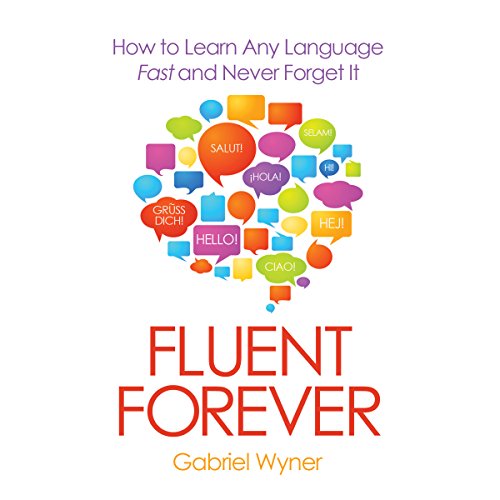Fluent Forever
How to learn any language Fast & Never Forget It - A Book summary

Introduction: Stab, Stab, Stab
The real challenge lies in finding a path that conforms to the demands of a busy life.
In the process, you’ll better understand the inner workings of your mind and the minds of others. You’ll learn to speak a new language, too.
I encountered three basic keys to language learning:
- Learn pronunciation first.
- Don’t translate.
- Use spaced repetition systems.
In the course of mastering the sounds of a language, our ears become attuned to those sounds, making vocabulary acquisition, listening comprehension, and speaking come much more quickly. While we’re at it, we pick up a snazzy, accurate accent
Not only can a beginning student skip translating, but it was an essential step in learning how to think in a foreign language. By throwing away English, I could spend my time building fluency instead of decoding sentences word.
The third key, use spaced repetition systems (SRSs), came from language blogs and software developers. SRSs are flash cards on steroids. Based upon your input, they create a custom study plan that drives information deep into your long-term memory. They
I made sure that none of my flash cards had a word of English on them. I began making flash cards for the pronunciation rules, added a bunch of pictures for the nouns and some verbs, learned the verb conjugations, and then built up to simple French definitions of more abstract concepts.
THE GAME PLAN
What is fluency?
We maintain an image of fluency in our minds: a summer afternoon in a Parisian café, casually chatting up the waitress without needing to worry about verb conjugations or missing words in our vocabularies. Beyond that café, we must decide individually how far we wish to go.
You’ll have to determine for yourself whether your image of fluency includes political discussions with friends, attending poetry readings, working as a secret agent, or lecturing on quantum physics at the Sorbonne. We struggle to reach any degree of fluency because there is so much to remember.
The rulebook of the language game is too long. We go to classes that discuss the rulebook, we run drills about one rule or another, but we never get to play the game. On the off chance that we ever reach the end of a rulebook, we’ve forgotten most of the beginning already. Moreover, we’ve ignored the other book (the vocabulary book), full of thousands upon thousands of words that are just as hard to remember as the rules.
Forgetting is our greatest foe, and we need a plan to defeat it.
- how to stop forgetting
- get to the actual game
- what to remember, so that once you start playing the game, you’re good at it.
- rewire your ears to hear new sounds
- rewire your tongue to master a new accent.
We’ll investigate the makeup of words, how grammar assembles those words into thoughts, and how to make those thoughts come out of your mouth without needing to waste time translating.
We’ll make the most of your limited time, investigating which words to learn first, how to use mnemonics to memorize abstract concepts faster, and how to improve your reading, writing, listening, and speaking skills as quickly and effectively as possible.
I want you to understand how to use the tools I’ve found along the way, but I also want you to understand why they work. Language learning is one of the most intensely personal journeys you can undertake. You are going into your own mind and altering the way you think. If you’re going to spend months or years working at that goal, you’ll need to believe in these methods and make them your own. If you know how to approach the language game, you can beat it.
This book is my time machine. If I squint my eyes just right, then you are monolingual me from nine years ago, and I’m creating a time paradox by helping you avoid all of the pitfalls and potholes that led me to make my time machine in the first place. You know how it is.
How Long Does Fluency Take?
English vocabulary is 28 percent French and 28 percent Latin. As soon as an English speaker learns proper French pronunciation, he already knows thousands of words.
Learning Dutch takes 23–24 WEEKS (575–600 CLASS HOURS)
You’ve already met the only prerequisite: you’re interested. Think about exercise for a moment. To succeed in an exercise routine, we need to enjoy it or we’ll drop it.
As long as language learning is hard, we’ll run into the same problems. Who enjoys drilling grammar and memorizing word lists? Even if I promise you Fluency in 30 Seconds a Day, you’re going to have a hard time sticking to it if it’s unpleasant.
I intend to teach you how to learn, rather than what to learn.
The Path Forward
- Choose a Language
- Get Language Books
- A Good Grammar Book
- A Phrase Book
- A Frequency Dictionary
- A Pronounciation Guide
- Thematic Vocabulary Book
Say Hello